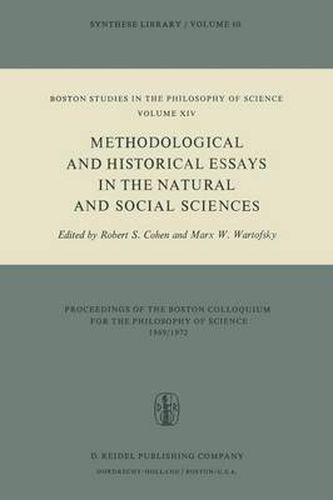Readings Newsletter
Become a Readings Member to make your shopping experience even easier.
Sign in or sign up for free!
You’re not far away from qualifying for FREE standard shipping within Australia
You’ve qualified for FREE standard shipping within Australia
The cart is loading…






This title is printed to order. This book may have been self-published. If so, we cannot guarantee the quality of the content. In the main most books will have gone through the editing process however some may not. We therefore suggest that you be aware of this before ordering this book. If in doubt check either the author or publisher’s details as we are unable to accept any returns unless they are faulty. Please contact us if you have any questions.
Modem philosophy of science has turned out to be a Pandora’s box. Once opened, the puzzling monsters appeared: not only was the neat structure of classical physics radically changed, but a variety of broader questions were let loose, bearing on the nature of scientific inquiry and of human knowledge in general. Philosophy of science could not help becoming epistemological and historical, and could no longer avoid metaphysical questions, even when these were posed in disguise. Once the identification of scientific methodology with that of physics had been queried, not only did biology and psychology come under scrutiny as major modes of scientific inquiry, but so too did history and the social sciences - particularly economics, sociology and anthropology. And now, new ‘monsters’ are emerging - for example, medicine and political science as disciplined inquiries. This raises anew a much older question, namely whether the conception of science is to be distinguished from a wider conception of learning and inquiry? Or is science to be more deeply understood as the most adequate form of learning and inquiry, whose methods reach every domain of rational thought? Is modern science matured reason, or is it simply one historically adapted and limited species of western reason? In our colloquia at Boston University, over the past fourteen years, we have been probing and testing the scope of philosophy of science.
$9.00 standard shipping within Australia
FREE standard shipping within Australia for orders over $100.00
Express & International shipping calculated at checkout
This title is printed to order. This book may have been self-published. If so, we cannot guarantee the quality of the content. In the main most books will have gone through the editing process however some may not. We therefore suggest that you be aware of this before ordering this book. If in doubt check either the author or publisher’s details as we are unable to accept any returns unless they are faulty. Please contact us if you have any questions.
Modem philosophy of science has turned out to be a Pandora’s box. Once opened, the puzzling monsters appeared: not only was the neat structure of classical physics radically changed, but a variety of broader questions were let loose, bearing on the nature of scientific inquiry and of human knowledge in general. Philosophy of science could not help becoming epistemological and historical, and could no longer avoid metaphysical questions, even when these were posed in disguise. Once the identification of scientific methodology with that of physics had been queried, not only did biology and psychology come under scrutiny as major modes of scientific inquiry, but so too did history and the social sciences - particularly economics, sociology and anthropology. And now, new ‘monsters’ are emerging - for example, medicine and political science as disciplined inquiries. This raises anew a much older question, namely whether the conception of science is to be distinguished from a wider conception of learning and inquiry? Or is science to be more deeply understood as the most adequate form of learning and inquiry, whose methods reach every domain of rational thought? Is modern science matured reason, or is it simply one historically adapted and limited species of western reason? In our colloquia at Boston University, over the past fourteen years, we have been probing and testing the scope of philosophy of science.